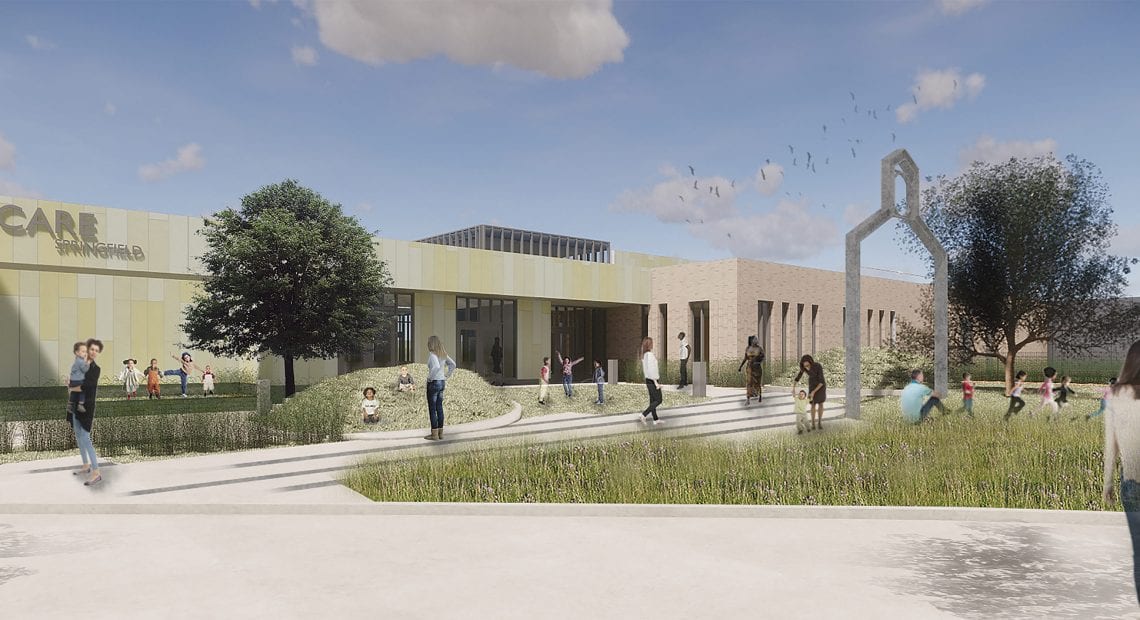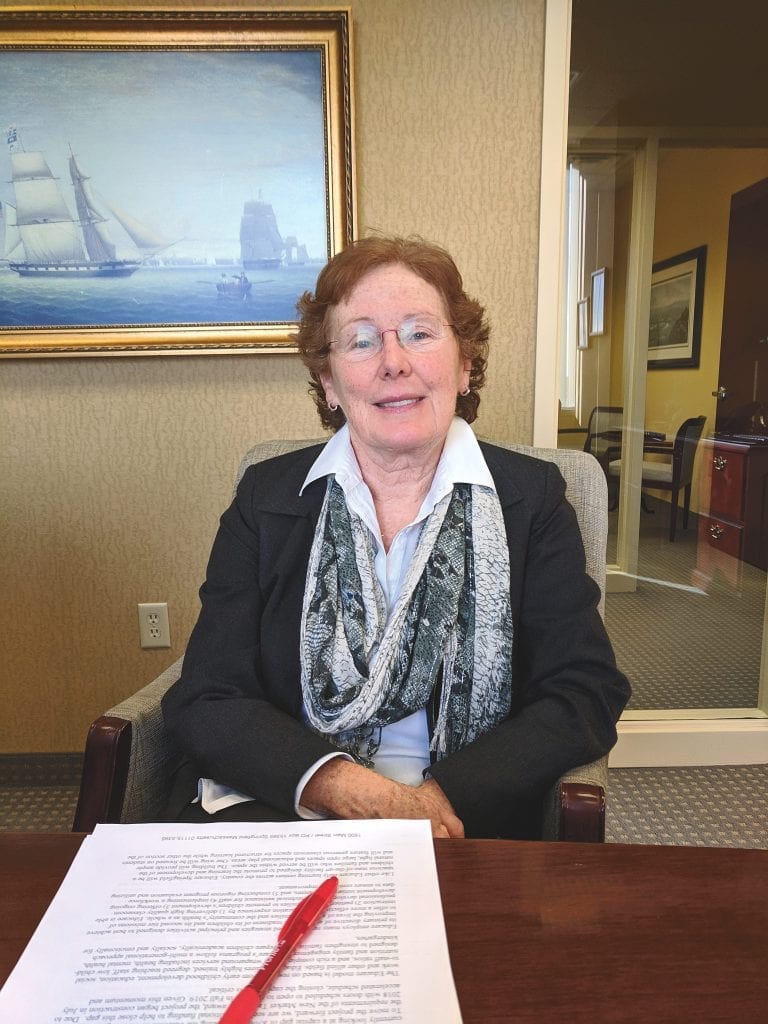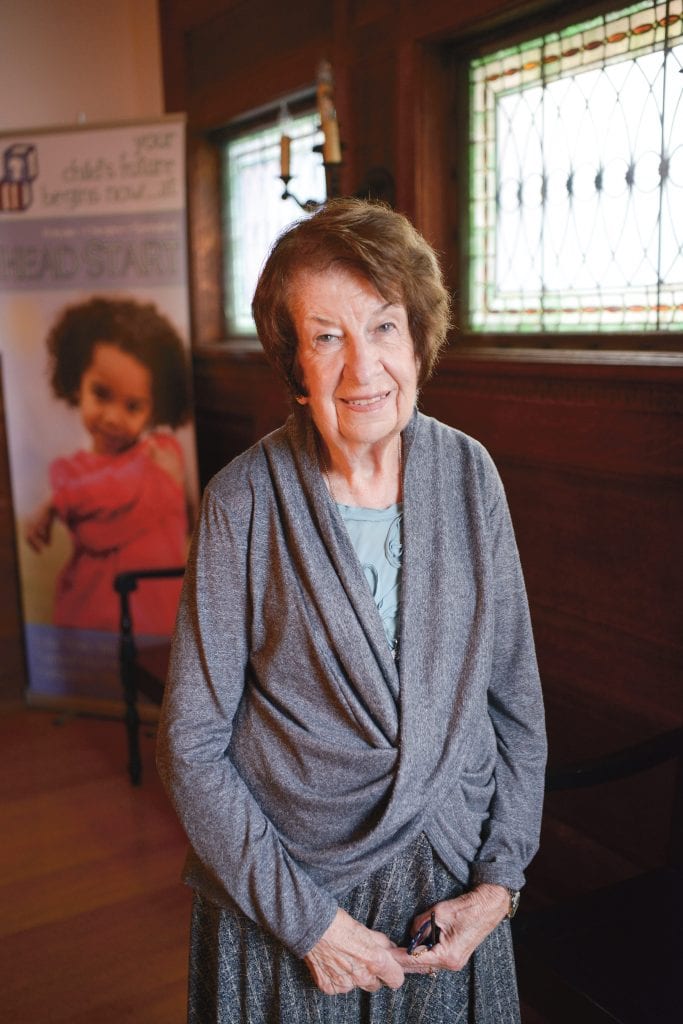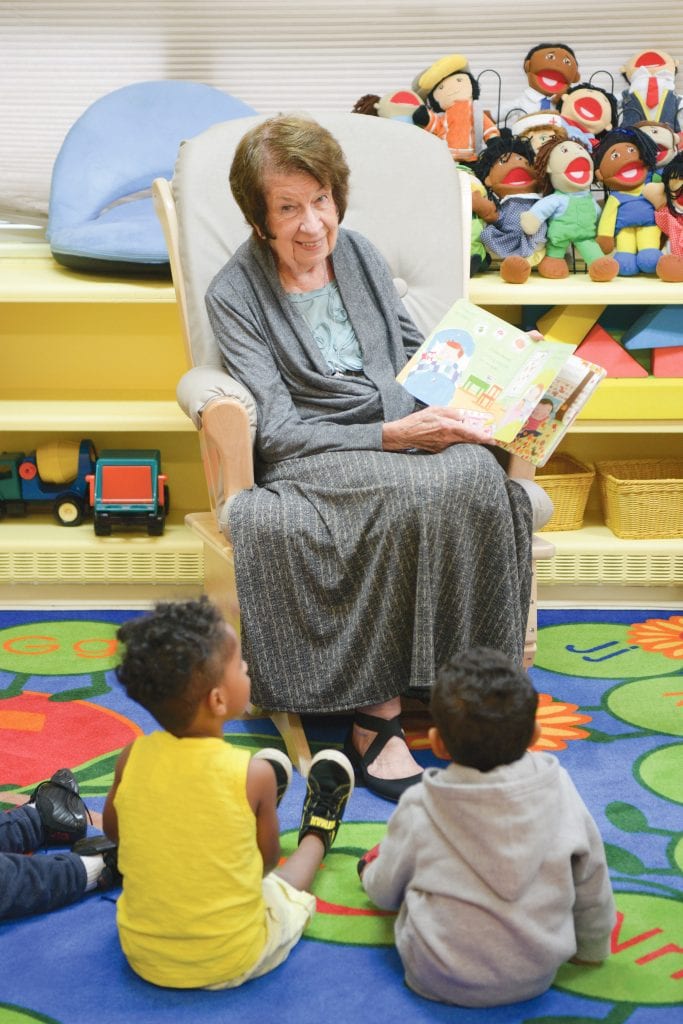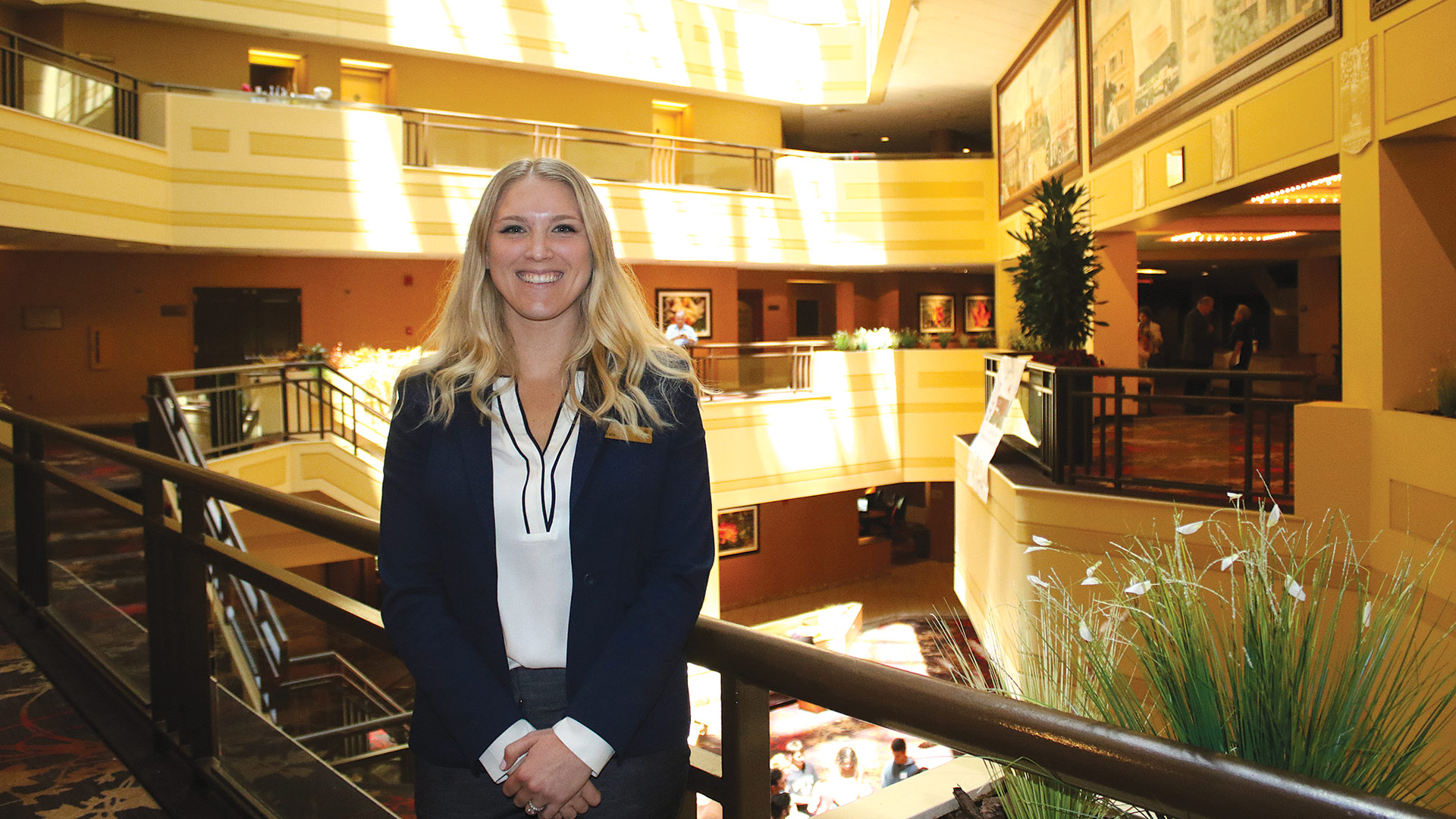
Katie DiClemente says the openness of the meeting spaces at the Sheraton is one of the biggest selling points for people looking to stage conventions.
Sheraton Springfield Takes Steps to Stand Out in the Marketplace
Stacy Gravanis acknowledged the obvious when it comes to the convention and meetings market in the Northeast, and the country as a whole — there is no shortage of competition.
And in this climate, the assignment is also obvious — to find a way, or several ways, as the case may be, to stand out in this crowded marketplace.
The Sheraton Springfield has been doing that since it opened more than 30 years ago, said Gravanis, general manager of the facility, and it keeps looking for new, innovative, and, well, cool ways of continuing that practice. Cool as in a Ding-Dong cart. Indeed, the nostalgic summertime staple, sometimes seen patrolling neighborhoods and often seen parked at pools and lakes, became part of the landscape at the downtown Springfield landmark during the first week in August.
It was parked on the grounds, providing a unique opportunity to cool down during what has been an oppressive summer to date — for guests and downtown workers alike. And it became another way to bring value and something different to visitors, said Gravanis, who told BusinessWest that this is all part of the work to not only stand out — as important as that is — but also to help build relationships and turn customers into repeat customers, a critical assignment in this industry.

One of the stops on the Sheraton’s ice cream truck tour was MGM Head Start in Springfield.
“The goal is to find that connection to them and build loyalty,” she told BusinessWest, adding that the Ding-Dong cart is just one example of programs, products, and services that go into the connection-building process.
Katie DiClemente, assistant director of Sales and Marketing for the Sheraton agreed. She said that conventions and meetings comprise a large slice of the business at the Sheraton, one where building relationships and generating repeat business is essential.
DiClemente noted that the facility hosts dozens of convention groups a year, such as the Pancretan Association of America, which was in town from June 28 to July 3 and brought 475 people to the hotel. Meanwhile, its assorted meeting spaces host a wide array of gatherings, from company retreats and annual meetings to team-training sessions, to educational seminars.
The hotel’s portfolio of facilities and its unique layout (more on that later) are attractive selling points, she said, as is the region and its many attractions.
Both Gravanis and DiClemente said an already attractive mix of attractions, from Six Flags to the Dr. Seuss museum, has been significantly bolstered by MGM Springfield, which they expect to help bring new convention business to the 413.
For this issue and its focus on meetings and conventions, BusinessWest talked with Gravanis and DiClemente about the Sheraton’s ongoing work to stand out in the market, and how it is creating new flavors of customer service — figuratively but also quite literally.
Getting the Scoop
One of the largest facilities of its kind in the region, the Sheraton boasts 325 hotel rooms, more than 36,000 square feet of meeting space, including a ballroom and eight meeting rooms on the third floor, six meeting rooms on the second floor, and two additional meeting rooms on the fourth floor, leaving plenty of space for large conventions.
DiClemente says the 10,000 square foot ballroom can hold up to 1,000 people depending on the type of event, with a 500-person cap for a banquet-style event.
But size is not the only attractive quality. Indeed, DiClemente said the setup of the meeting spaces at the Sheraton Springfield is unlike most other hotels.
“The flow of our space is something that definitely attracts people to our hotel,” she told BusinessWest. “We’re not a conference-style hotel where you’re walking down a long hallway and going to your meeting rooms and finding it that way. We’re an atrium style, so if your meeting room is on the second floor, you can look down and see where you need to go. The natural light shines through the atrium.”
This natural light, and all that comes with it, has attracted a number of groups to the Sheraton — and Greater Springfield. The Pancretan Association of America (PAA), a national organization comprised of members who support and perpetuate Cretan culture through scholarship, educational, cultural, and philanthropic programs for those in the United States, Canada, and Crete, is an example of the how the region and the hotel are drawing local, national, and even international groups.
And bringing them here is a collaborative effort, said Gravanis, adding that the hotel works closely with the Greater Springfield Convention and Visitors Bureau (GSCVB), keeping in daily contact with Director of Sales Alicia Szenda.
“We have a really great relationship with her being the director of sales,” said DiClemente. “If the convention center has a lead where they need overnight rooms, that’s sent to the [GSCVB] and Alicia is that middleperson between the MassMutual Center and the hotels in the area.”
Once that lead is sent out to the hotels, they bid on the piece of business, which is sent directly to Szenda. Of course, this region is usually competing against several other cities in for the right to host specific conventions, which brings us back to that notion of standing out — and building relationships.
Again, the Ding-Dong cart was just part of it.
Aside from the ice cream runs, Gravanis said the hotel staff works to stay in touch with clients — be they groups or individuals — through birthday and anniversary cards and other touch points to build a relationship and, hopefully, a long-term relationship.
“Whether it’s a local client or a client out of a different city, it’s so important to build that relationship with them and that’s something we do every day,” said DiClemente. “It’s really a top priority for our sales team.”
Gravanis added, again, that the area itself is a huge selling point for the Sheraton, and it is becoming more so through the addition of MGM Springfield, which has the potential to bring a wide array of meetings and conventions to the city, many of which will require large amounts of hotel rooms and other facilities.
Staying Power
Since it opened nearly three decades ago, the Sheraton has been one of the key players in the region’s large and important hospitality sector.
It has been one of the important pieces in the puzzle when it comes to the infrastructure needed to bring meetings and conventions, and, therefore, revenue and vibrancy, to the region.
It has maintained this position by being innovative and always finding ways to stand out. And the Ding-Dong cart, as cool as it is, is just the latest example.
Kayla Ebner can be reached at [email protected]



